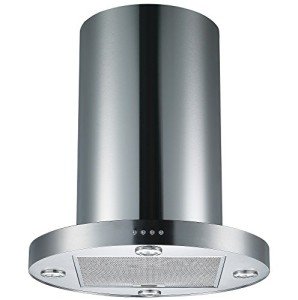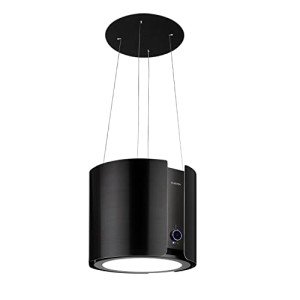You'll Never Be Able To Figure Out This Kitchen Island Extractor's Tri…
페이지 정보

본문

The Essential Guide to Kitchen Island Extractors: A Comprehensive Overview
In modern-day kitchen style, the kitchen island has emerged as a main feature, serving both aesthetic and functional functions. To improve the cooking experience, many homeowners are going with kitchen island extractors, which not only eliminate cooking odors but likewise add to the kitchen's overall style. This article will check out various aspects of kitchen island extractors, including their advantages, types, setup considerations, and upkeep. Furthermore, common FAQs will also be resolved to offer a clearer understanding of this ingenious kitchen feature.
Comprehending Kitchen Island Extractors
Kitchen island extractors are ventilation systems mounted above kitchen islands that assist in getting rid of smoke, steam, and smells produced throughout cooking. Unlike standard hoods that are installed versus walls, island extractors hang from the ceiling, making them perfect for open-plan designs that feature a main kitchen island.
Benefits of Kitchen Island Extractors
Improved Air Quality: Best matched for busy cooking areas, island extractors substantially enhance the air quality by straining airborne contaminants.
Enhanced Aesthetics: Available in different styles and finishes, these extractors can match a kitchen's decoration, including a touch of elegance.
Area Optimization: They maximize counter area, as they don't need wall mounting, permitting more versatility in kitchen style.
Personalized: Many designs offer adjustable fan speeds, lighting functions, and an option of ducted or recirculating choices to match individual requirements.
Kinds Of Kitchen Island Extractors
1. Ducted Extractors
Ducted kitchen island extractors are linked to a duct system that vents air outside. They are typically preferred for their efficiency in removing smoke and odors.
Pros:
- Better air quality
- More efficient at smell removal
- Quiet operation
Cons:
- More complex setup
- Requires structural modifications
2. Recirculating Extractors
Recirculating extractors filter air through charcoal or grease filters and return the purified air back into the kitchen. These are ideal for areas where ductwork isn't practical.
Pros:
- Easier setup
- Less invasive
Cons:
- Less efficient at smell removal
- Regular filter replacements required
3. Downdraft Extractors
Downdraft extractors are incorporated into the countertop and increase up during usage. Although they are not as popular as traditional hoods, they are an excellent choice for minimalistic styles.
Pros:
- Space-saving design
- Suitable for particular designs
Cons:
- Less effective compared to traditional extractors
- Greater setup costs
| Type | Pros | Cons |
|---|---|---|
| Ducted | Exceptional air quality, peaceful | Complex installation |
| Recirculating | Easy installation, less intrusive | Regular filter modifications necessary |
| Downdraft | Space-saving, sleek style | Greater expenses, less efficient |
Installation Considerations
Setting up a Kitchen Island Extractor (Meetme.Com) needs mindful planning. Here are some vital aspects to remember:
Height: The optimal height for setting up an extractor is 30-36 inches above the cooking surface. For gas stoves, the height should be closer to 36 inches.
Size: Ensure the extractor is 6-12 inches broader than the cooktop on all sides for ideal efficiency.
Ducting: If choosing for a ducted extractor, prepare for duct placement. This may need ceiling changes or extra building work.
Electrical Supply: Ensure compliance with regional codes and regulations when installing electrical parts for lighting and motor functions.
Design Compatibility: Consider the kitchen's overall style style and choose an extractor that balances with existing components.
Maintenance and Care
To guarantee optimal efficiency, routine upkeep of kitchen island extractors is vital. Here are some ideas:
Clean Filters Regularly: Depending on the kind of extractor, filter cleaning or replacement should be done every 1-3 months.
Check the Motor: Regularly check the motor and fan for particles build-up and guarantee they are working properly.
Oil Moving Parts: Lubrication will extend the life of your extractor and reduce noise levels.
Inspect for Duct Blockages: If you have a ducted system, periodically inspect for any blockages or damage to the ductwork.
Frequently Asked Questions About Kitchen Island Extractors
1. How do I select the right size extractor for my kitchen?
Selecting the ideal size extractor includes determining the width of your cooktop and guaranteeing the extractor [empty] is 6-12 inches larger on either side.
2. Are kitchen island extractors noisy?
A lot of modern kitchen island hood kitchen extractors are developed for quiet operation, especially at lower fan speeds. However, noise levels can differ based upon model and settings.
3. What is the typical cost of a kitchen island extractor?
Prices can range hoods for islands from ₤ 200 to over ₤ 2,000, depending upon the brand, type, and features. Installation costs will differ based upon local labor rates and the complexity of the setup.
4. Can I install an extractor myself?
While some property owners opt for DIY installation, it is advised to employ a professional, particularly for ducted systems, to make sure safety and compliance with local codes.
5. How often should I have my kitchen island extractor serviced?
An annual service by an expert is a good idea for ducted systems to look for obstructions, while recirculating systems must have filters changed every couple of months.
In conclusion, kitchen island extractors are both practical and stylish services for contemporary kitchen areas. With various types, installation considerations, and maintenance needs, it's essential for house owners to inform themselves about the various options available. By picking the right extractor, they can produce an enjoyable cooking environment and enhance the kitchen's performance and look.

- 이전글What Is The Evolution Of Hob 25.05.18
- 다음글Hospital Parking Is Not Only A Diy Project 25.05.18
댓글목록
등록된 댓글이 없습니다.

